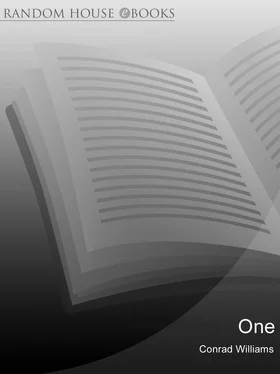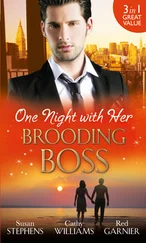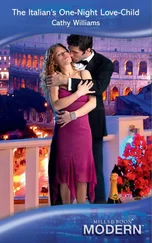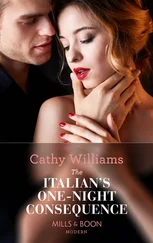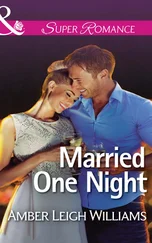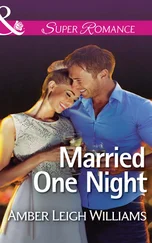Jane edged his way out of the alley, casting glances up and down a road that might or might not have once been called White Horse Street. Its sign had been prised off the wall years before. He checked windows and doors, rooftops, shadows. Shops here were long abandoned. Word had percolated through the city that the tiger had been seen in this area recently. He stopped outside a hairdresser's. Dust covered every surface inside. Hairdryers lay on counters like science-fiction weapons. Foxed mirrors reflected a throat of stairs to the rear of the shop that he did not investigate. His white breath measured a pulse rate of fear. Black snow lay in drifts against doorways that had lacked for years the wood meant to fill them. It formed a slush that ran and refroze in the roads, creating strange shining curds of pitch. It fell in soft obliques against the dun of the cloud ceiling: slow black bullets, every one of them hitting their targets. The cold reached fingers under the cuffs of Jane's coat and caressed his skin.
He couldn't keep his eyes off those backstage city shadows. It was like seeing a car crash occur in front of you, or a Skinner uncoil within its epidermal prison for the first time. What if? The question had died in him long ago. Maybe? Just think . . . All of it had withered like a basil leaf scorched by frost. The secret slots and pockets of the city were too dangerous for casual checks these days. Leave it to the flushers. If he crops up, he crops up. Old enough to look after himself now.
Ahead of him lay Shepherd Market, a tiny enclave with neighbouring pubs and an alleyway between them leading to Curzon Street, if memory served correctly. To the left, curving away from him, more restaurants, chichi fashion boutiques, jewellers and chocolatiers. People sitting inside a Polish-Mexican bistro at pretty tables waiting for a meal that would never arrive, time having drawn deep runnels into their superdried faces. Nothing moved. He made his way towards the alley, keeping an eye on the oily windows of the pubs.
He walked down Curzon Street past the Mayfair cinema where he and Cherry had watched some Japanese horror film centuries ago. Afterwards, they'd walked home, a fair hike miraculously shortened by the excitement in their conversation and proximity. Love could do that to you, he thought, staring at the broken cinema entrance. It creased time and distance, put you in a bubble. He wasn't going in there either. Not without a flame-thrower and plenty of back-up. And it was another two weeks before he was on incineration detail.
A gust of wind drove a blast of black hail into his face. He flinched from it and pulled the collar of his coat up around him, checked the positioning of his goggles, cycling mask and helmet. He had never grown used to the smell of sunblock; it stuck in his craw like the dense stench of a rancid dairy. He tucked himself into the doorway of a café while he went through his backpack, habit lifting his head to check the various approaches every few seconds. There was a bottle of water, a tin of emergency rations, a First Aid kit, a sheaf of tracing paper tucked into a plastic wallet and an Ordnance Survey map of London from 1968. He ignored these and picked out a battered notebook. Loose leaves, old tickets, photographs and torn pieces from maps were tucked in among its pages. Notes to himself. Reminders. Warnings. White spaces on the A–Z he had yet to explore. The city according to him, decked out in highlighter, pencil and paper clips.
The light was failing. He had to find shelter before it vanished completely. Some had taken to riding bicycles around the ruins but he preferred to go by foot. He didn't like the way a bicycle switched you off. Your senses were dulled by the rush of wind and the exertion. You could coast around a corner into any amount of trouble. One step at a time. Stop, look, listen and think. Stay alive.
Jane thought of the places he had slept in over the years. He'd stayed in a bedroom in Buckingham Palace that he was pretty sure had belonged to Queen Elizabeth II. He'd slept on the grand old table in the Cabinet Office at 10 Downing Street; a lovely blue sofa in the United States Embassy in Grosvenor Square. But the novelty quickly wore off and he became more careful with his choices. He stayed in rooms close to well-connected roofs in case he had to make a quick getaway. Whenever he found a secure place to hide out, with excellent escape options, he marked it by the front door with a stick of orange chalk, making sure he found a spot that the sleet couldn't get at. Orange marks crossed with blue meant that a previously good place was now infected, unsafe. You didn't go there unless you had a canister of kerosene strapped to your back.
He moved now through Mayfair but paused at Berkeley Square, where he could see masses of bodies that had not been burnt piled up against railings. That would have to be reported. He made a note of the location and doubled back on himself, not keen to invite trouble by trying to pick a way through them. Not this late in the afternoon, anyway. He crossed Piccadilly and jinked up Jermyn Street. A sign in a window: Quality Cooled Offices . All the buildings failing in some way. Rain sanding the concrete back to reinforcement rods. Teeth marks where Skinners had, like leeches at fish-tank glass, sucked away the animal grease of fingerprints and sputum laid upon the stone by human beings over the decades. The venom in their saliva had reacted with the building materials, producing ugly seams of black decay that wormed through brick and breeze-block, like cavities in a tooth going unchecked. There could be only one outcome. Already some of the more recent constructions were sagging like sots at a happy-hour bar. Terraces made stovepipe shapes. Millionaire waterfront properties tossed up in the 1980s were throwing themselves into the river.
There were a number of hotels sharing space with classy formal dress shops. Mannequins in the windows had not changed their outfits in a decade. Those that had not melted looked more human than the people he saw every day, himself included. He caught sight of his reflection in the glass that remained in its frames. Long hair. Wild beard. He looked like a shabby mountaineer. All the razors were as blunt as a bad comedian's punchline. Hillaby had taken to sharpening his old blades with a strop and shaved religiously, every day, but life was too short, way too short, for that kind of behaviour. One nick from those blades and there was no telling what might tumble into your bloodstream.
Jane stood and watched the entrance to a hotel at the Regent Street end of the road. Orange chalk mark on the steps leading to automatic doors long dead. Ornamental bay trees crumbled to ash in their grand marble pots. A man in a black suit and top hat lay dead just inside the entrance. He had fallen awkwardly, his left knee bent unnaturally, causing his shin to splay. Jane always felt a twinge of sympathetic cramp whenever he saw a body crumpled like this; felt the compulsion to straighten things out, give the body some dignity, some illusory comfort.
He panthered into the lobby and paused again, felt his skin prickling as he strained to hear noises that might give him a reason to leave. He hated this. Every night, the necessity of a roof over his head. It was like shutting yourself in a coffin, but statistically it was safer than a night spent treading pavements, ducking, hiding, trying to stay one step ahead. The reception area was empty. He took marble steps carpeted with red up to the top floor. A long corridor with subtle lighting that had not worked for ten years studded in the ceiling. Jane had forgotten what electric lighting was like. Sunlight too, for that matter. It would probably scour his eyes out.
He listened at the doors of all the rooms. Silence from within. He chose a room at the end and delicately closed the doors behind him, gritting his teeth at the soft, barely audible click of the lock. He listened for a while. Wind growling in the old city lungs. Snow spittle lashing glass and steel.
Читать дальше
